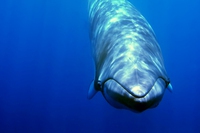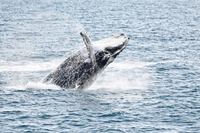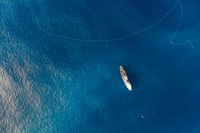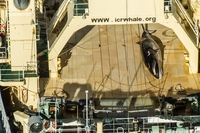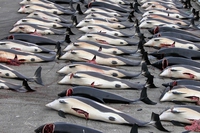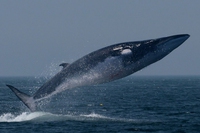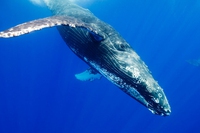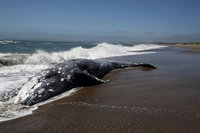
Whales are starving to death due to rising ocean temperatures
The decline in grey and humpback whales in the Pacific and Atlantic Oceans has been traced to food shortages caused by rising ocean temperatures.
The decline in grey and humpback whales in the Pacific and Atlantic Oceans has been traced to food shortages caused by rising ocean temperatures.
For the first time in seventeen years, Iceland’s two main whaling companies won’t resume whale hunting. The announcement concerns this year’s season but could carry into the future.
Despite a ban on whale hunting entered into force in 1986, the giants of the oceans still face several threats. A notorious danger is represented by Japan, the Asian country that continued unperturbed to slaughter these peaceful cetaceans “for scientific purposes”, thus by bypassing the ban. The threats to whales Japan, however, isn’t the only
Quella volta che Sea Shepherd è venuta nella redazione di LifeGate e Alex Cornelissen ci ha raccontato la sua storia e le sfide che attendono gli oceani.
L’organizzazione conservazionista ha intercettato la flotta baleniera giapponese nel santuario delle balene nell’Oceano Antartico, area in cui è vietata la caccia ai cetacei.
Il Giappone ha presentato l’ennesimo programma di caccia alle balene per scopi “scientifici” che prevede la soppressione di 314 cetacei per anno, per 12 anni.
Grindadráp is the local name for a yearly event that sees the people of the Faroe Islands, a self-governing archipelago under Denmark, hunt long-finned pilot whales as well as other species of cetaceans such as bottlenose dolphins, white-sided dolphins and Risso’s dolphins. These species aren’t on the International Union for Conservation of Nature (IUCN)’s list of endangered animals, but
“Blow at 2 o’clock!”, shouts a member of the research team onboard the motorsailer Pelagos. For five endless minutes everyone has been scanning the sea in a state of alert silence, looking for a white puff to indicate the blow of a male sperm whale coming to the surface to breathe and rest. The researchers
L’Islanda ha annunciato che quest’anno non aprirà la caccia alle balenottere. La scelta è di carattere economico, l’esportazione di carne di balena è infatti sempre più difficoltosa.
While most species of large whales are recovering from the collapse caused by commercial exploitation in the past two centuries, some populations are still struggling. A recent report, authored by experts of the Marine Mammal Commission in the U.S., reviews their status and highlights the main threats that these giants of the oceans are currently
